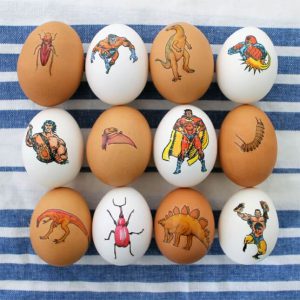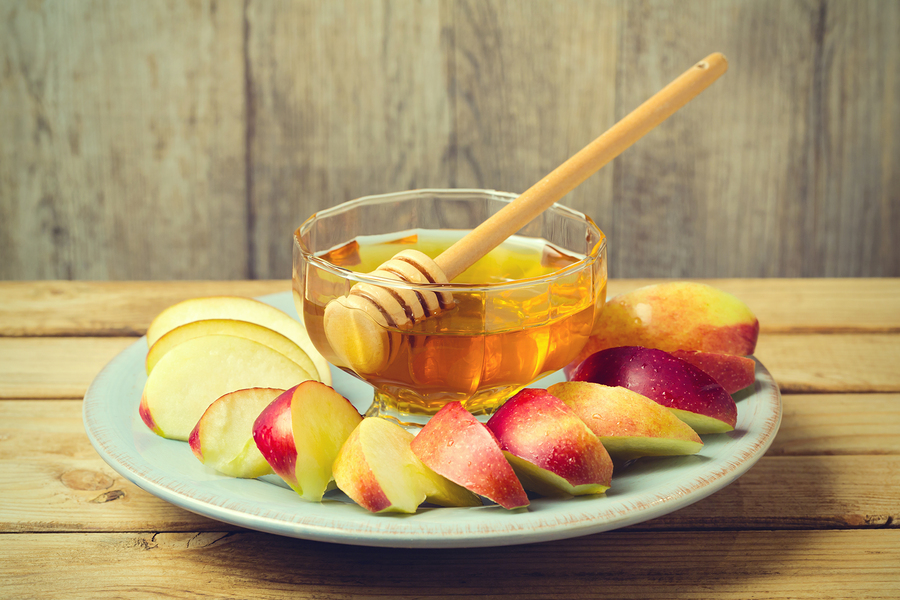
Apples and Honey
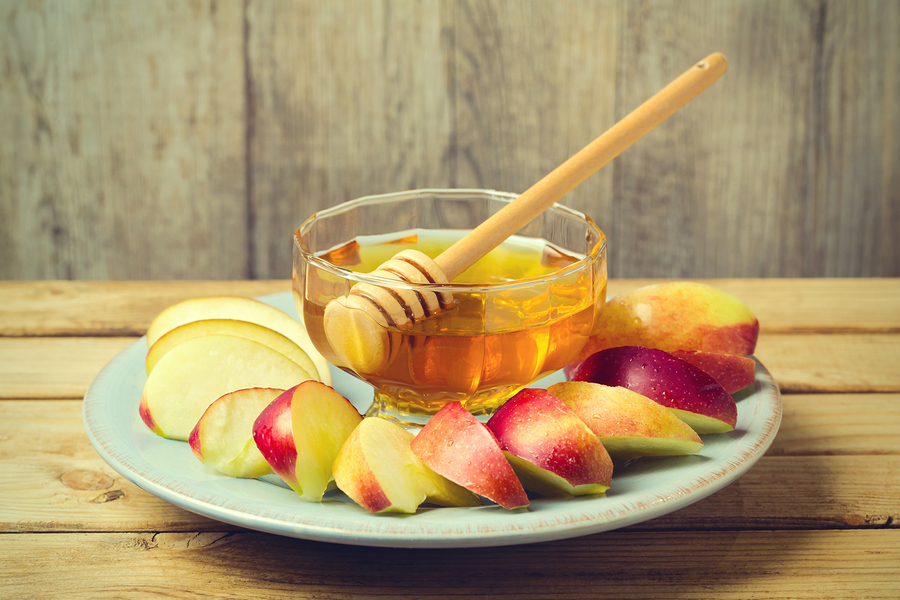
Apples and Honey
Yum! These are the most important Rosh Hashana foods. “It’s all about the sweetness; our hope that our year ahead [will] be sweet,” says Sari Laufer, Associate Rabbi at Congregation Rodeph Sholom in Manhattan.
Another reason to love honey? “There’s a Jewish tradition that when a kid first starts going to school, their parents and teachers would cover the letters of the Hebrew alphabet with honey and give it to the new student,” explains Rabbi Miriam Farber Wajnberg, Director of Adult Jewish Learning and Interfaith Engagement at the JCC Manhattan. “It means learning should always be sweet, even when it’s hard. This is a great message to keep in mind when Rosh Hashana coincides with the beginning of the new school year!”
Round Challah
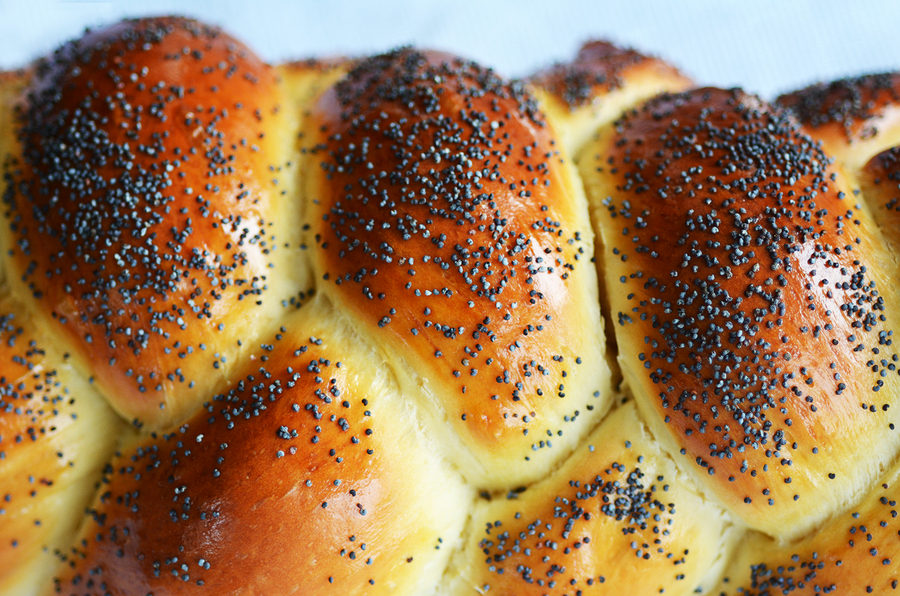
Round Challah
Challah is a deliciously doughy, thick, sweet bread that’s usually braided into a loaf. It takes on a special shape for Rosh Hashana. “The challah we eat on Rosh Hashana is round to symbolize how we move from one season to the next, from one year to the next,” explains Rabbi Wajnberg. “Jewish time is like the Circle of Life, reflecting that the seasons cycle into each other without stopping,”
Pomegranate
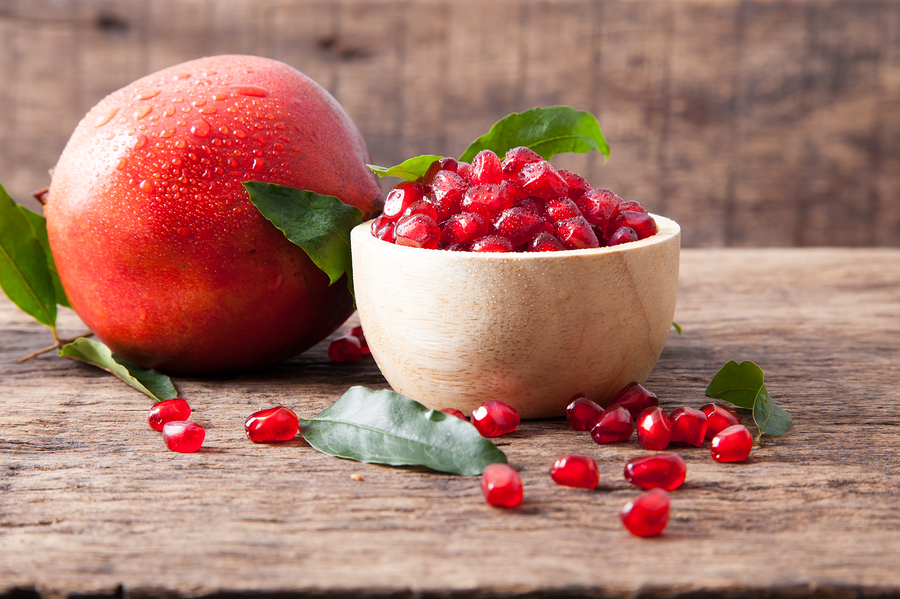
Pomegranate
According to Rabbi Laufer, rumor has it that a pomegranate has 613 seeds — the same number of commandments given to the Jews, tradition states. “One of the reasons we eat pomegranate at the start of the New Year is to symbolize our commitment to these commandments — and trying to be better people in the year to come,” she says. “Also, there’s also a nice connection to Israel; pomegranate is one of the 7 original species of the land, mentioned in Torah — and conveniently comes into season just around Rosh Hashana.”
A New, Uncommon Fruit
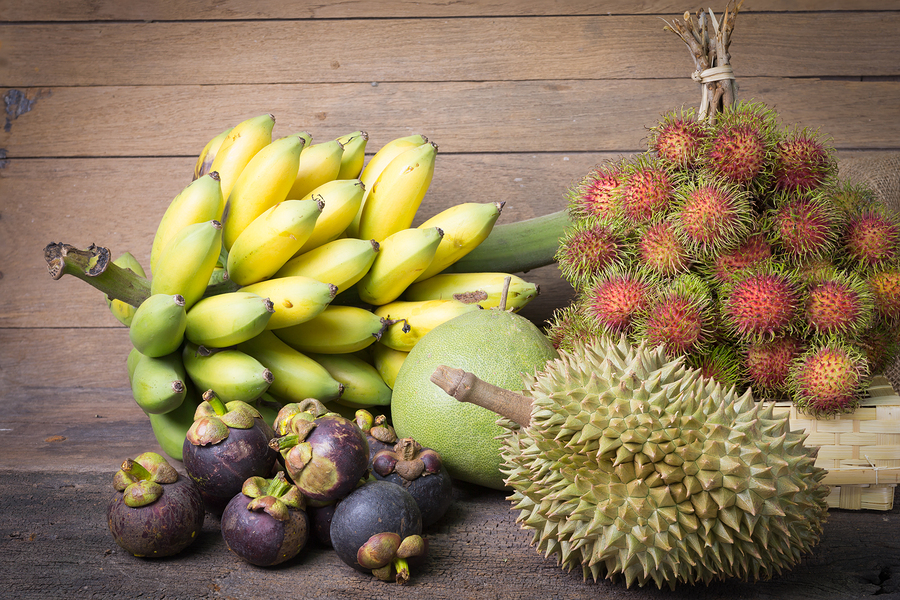
A New, Uncommon Fruit
“There’s a blessing in Jewish tradition called the Shehecheyanu, which we say on certain occasions. It thanks God for giving us life, keeping us alive, and letting us celebrate sacred moments. It is said at lifecycle moments, when you eat or do something for the first time, and at the start of holidays,” says Rabbi Laufer. “Because Rosh Hashana is a two-day holiday, there’s a debate about whether we can say the blessing on the second day as well. One of the great ways to ensure you can say it again is to try a food that you’ve never tried, or that you haven’t had in at least a year. Amongst some, it becomes a game to find really obscure fruits such as jack fruit, mangosteen, or even durian.”
Beets and/or Spinach

Beets and/or Spinach
The Hebrew word for beets, “selek” is similar to the word for “remove.” Beets are eaten to express the hope that enemies will depart. According to Kosher Food expert and About.com blogger Miri Rotkovitz, in Aramaic, the word “silka” referred to a leafy green vegetable akin to spinach. “Some maintain that this leafy green is the original symbolic food for Rosh Hashana, and that beets are a more recent development,” she says. “Of course, you could always hedge your bets with a spinach and beet salad…” However, parents know the real miracle of the holiday is if you can get your kids to eat any veggies! (Want to get kids jazzed about eating some holiday veggies? Rabbi Laufer recommends reading them the book, Talia and the Rude Vegetables!)
Fish Head
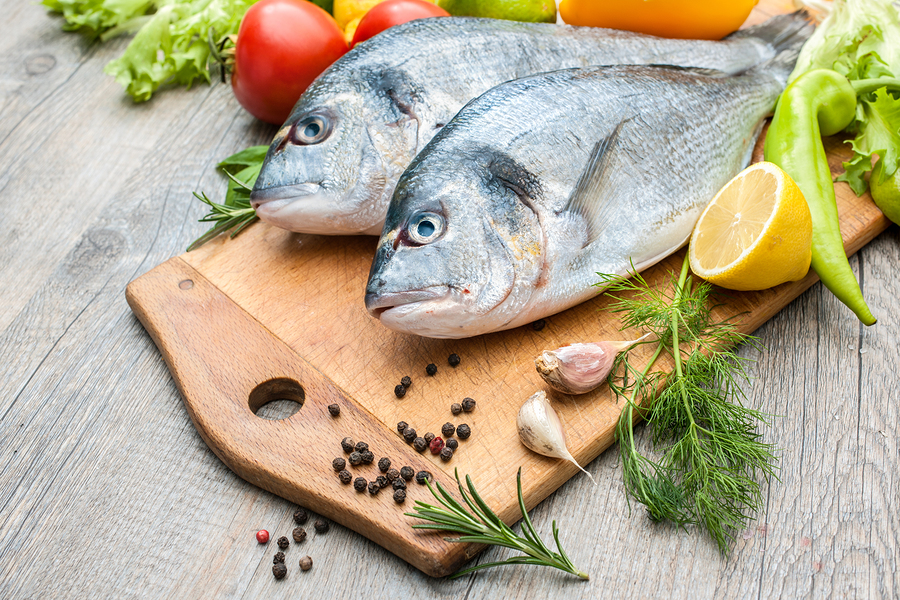
Fish Head
OK, OK… This is not the kid-friendliest of Rosh Hashana foods. Children might even cringe at the sight of it, but the fish head is indeed symbolic. According to Chabad.org, it symbolizes a desire to be at the “head of the class” this year. “Vegetarians may opt for a head of cabbage or garlic in place of the traditional fish or sheep’s head,” Rotkovitz adds.
Leeks
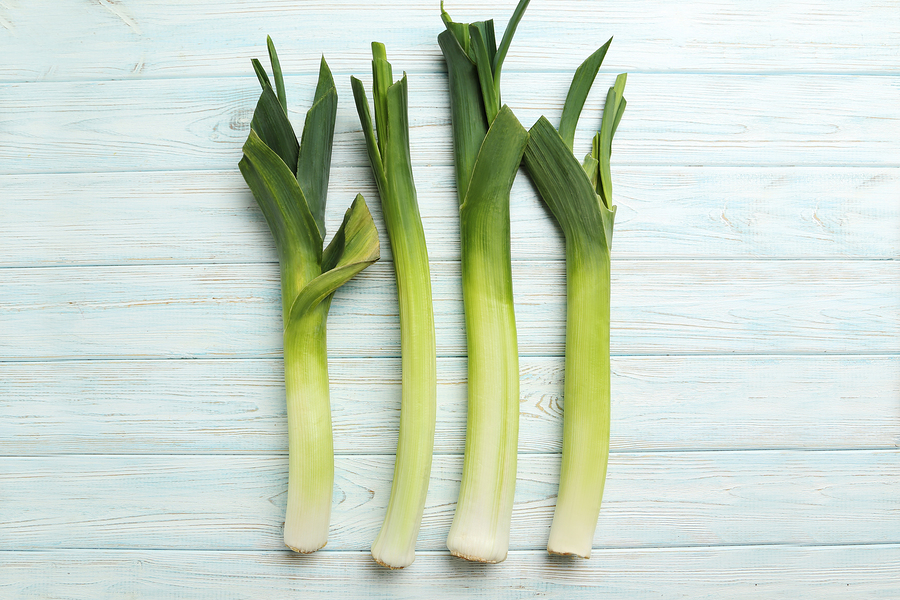
Leeks
Symbolically, the word for leek is related to the word “kareyt,” which means “to cut,” Rotkovitz explains. This symbol is linked to the prayer that those who wish to hurt us will instead be cut off.
Please comment below and tell us which food is your family’s favorite! Will your kids give everything a try, now that they know the meaning behind what’s served at a traditional Rosh Hashana meal? It’s worth a shot!
Also, check out our picks for educational and fun Rosh Hashana gifts for kids!












